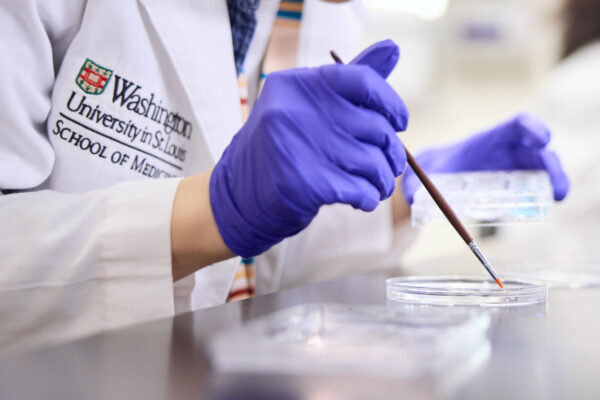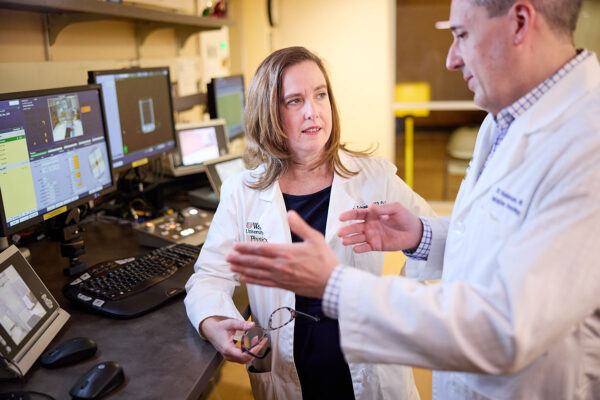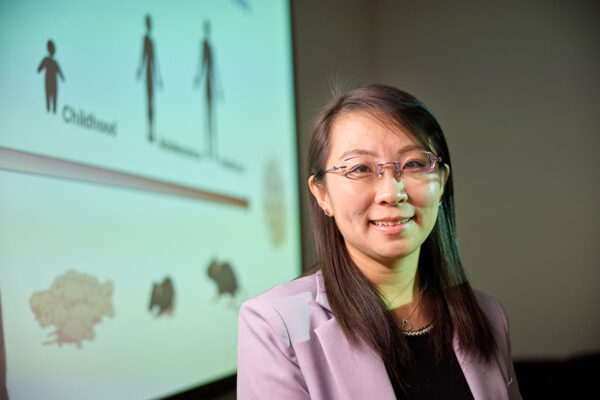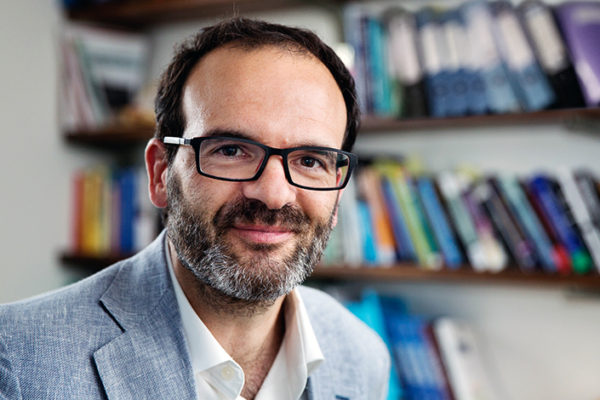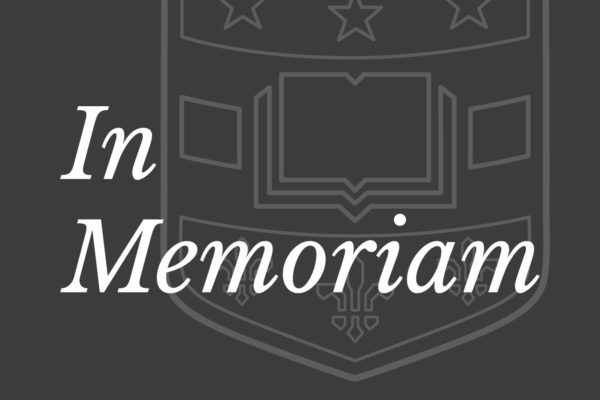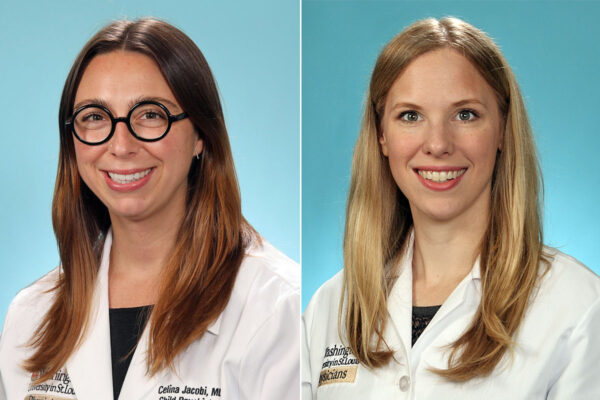WashU Medicine rises to No. 2 in nation in NIH research funding
Washington University School of Medicine in St. Louis received in 2023 the second highest amount of funding from the National Institutes of Health (NIH) of all medical schools nationwide. This ranking reflects the school’s commitment to cutting-edge research and positions it as a key player in shaping the future of medicine.
Schwarz named Danforth WashU Physician-Scientist Scholar
Julie K. Schwarz, MD, PhD, a highly regarded radiation oncologist known for her innovative mindset in treating patients and leading research to develop new treatments for deadly gynecologic cancers and heart conditions, has been named a William H. Danforth Washington University Physician Scholar.
Preventing early-onset colorectal cancers aim of $25 million award
Yin Cao, ScD, of Washington University School of Medicine in St. Louis, is leading an international team seeking to understand what is driving the increase in early-onset colorectal cancer globally. To do so, her team has received funding from Cancer Grand Challenges, co-founded by Cancer Research UK and the National Cancer Institute, part of the National Institutes of Health (NIH).
Social determinants of health increase Alzheimer’s risk
Social determinants of health are increasing Alzheimer’s disease and related dementia risk, finds a recent study from the Brown School and the School of Medicine at Washington University in St. Louis.
Preschoolers with depression at greater risk of suicide during adolescence
Children ages 3 to 6 who have had clinical depression are more likely than their peers to have attempted suicide or to have had thoughts of killing themselves by age 12, according to a new study by researchers at Washington University in St. Louis.
Philip E. Cryer, former director of endocrinology division, 84
Philip E. Cryer, MD, a professor emeritus and former longtime director of the Division of Endocrinology, Metabolism & Lipid Research at Washington University School of Medicine in St. Louis, died Feb. 24, 2024, at a hospital in St. Louis following a heart attack. He was 84.
Jacobi, Zickuhr named Loeb Teaching Fellows
Celina Jacobi, MD, an instructor in child psychiatry, and Lisa Zickuhr, MD, an assistant professor of medicine, have been named the 2024-26 Carol B. and Jerome T. Loeb Teaching Fellows at the School of Medicine.
Chen, Silva named senior members of National Academy of Inventors
Hong Chen and Jonathan Silva, both faculty members in the McKelvey School of Engineering at Washington University in St. Louis, have been named senior members of the National Academy of Inventors. They will be inducted in June.
Neurons help flush waste out of brain during sleep
Scientists at Washington University School of Medicine in St. Louis have found that brain waves help flush waste out of the brain during sleep. The findings could lead to new approaches for treating Alzheimer’s disease and other neurological conditions.
Shellhaas elected to American Epilepsy Society board
Renée Shellhaas, MD, the David T. Blasingame Professor of Neurology at the School of Medicine, has been elected to the American Epilepsy Society board of directors.
View More Stories
